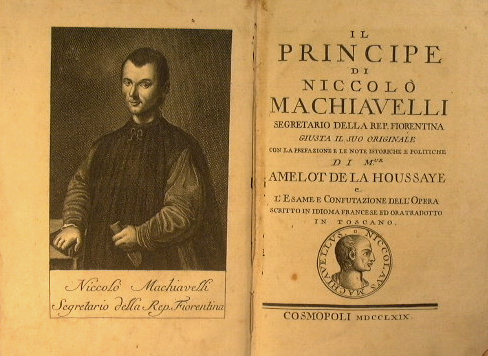Understanding Niccolò Machiavelli: Political Strategies and Their Relevance Today

Who Was Niccolò Machiavelli?
Niccolò Machiavelli, a name synonymous with political strategy and realpolitik, continues to influence political thought centuries after his time. His seminal work, The Prince, offers timeless insights into power, governance, and leadership. In this blog, we’ll delve into Machiavelli’s key ideas, their historical context, and their relevance in today’s political landscape.
Niccolò Machiavelli (1469-1527) was an Italian diplomat, philosopher, and political theorist. Born in Florence during the Renaissance, Machiavelli’s career was marked by his roles in various diplomatic missions. His experiences in the volatile political environment of Renaissance Italy greatly influenced his writings, especially The Prince (1532), which remains one of the most controversial and widely read works on political theory.
Key Concepts from Machiavelli’s The Prince
- The Ends Justify the Means: One of Machiavelli’s most famous principles is that the outcomes of a leader’s actions justify the methods used to achieve them. This controversial idea emphasizes pragmatism and effectiveness over moral considerations.
- Virtù and Fortuna: Machiavelli introduces the concepts of virtù (a leader’s ability to shape his own destiny through strength and skill) and fortuna (luck or chance). He argues that a successful leader must skillfully navigate these forces to maintain power and stability.
- The Importance of Appearances: Machiavelli advocates for leaders to maintain a public image of virtue while being willing to act ruthlessly behind the scenes if necessary. He believed that a leader’s image can be a powerful tool in consolidating power.
- Political Realism: Rather than focusing on idealistic notions of how politics should be, Machiavelli’s work is grounded in the reality of political power and the often harsh realities leaders face. His realism is evident in his advice on how to handle enemies, allies, and the people.
Historical Context and Impact
Machiavelli wrote during a time of intense political fragmentation in Italy. The constant shifting of alliances and the rise and fall of city-states provided a fertile ground for his observations on power dynamics. His work challenged the prevailing ideals of his time and introduced a new, pragmatic approach to political leadership.
The impact of The Prince was immediate and profound. It provided a stark departure from the idealistic views of governance prevalent during the Renaissance and laid the groundwork for modern political science. Machiavelli’s ideas influenced countless political leaders and thinkers, including prominent figures like Napoleon Bonaparte and modern-day politicians.
Relevance in Today’s Politics
In today’s complex political environment, Machiavelli’s ideas remain strikingly relevant. Here’s how:
- Strategic Thinking: Leaders and political strategists use Machiavellian principles to navigate political landscapes, build coalitions, and manage crises. Understanding the balance between appearance and reality is crucial in contemporary politics.
- Realpolitik: The concept of realpolitik, or practical politics based on power and pragmatic considerations rather than moral or ideological principles, echoes Machiavelli’s approach. Modern political leaders often face decisions that reflect the balance of power and strategic interests over ideological purity.
- Crisis Management: Machiavelli’s advice on handling crises and adversaries is pertinent in today’s global political arena. His emphasis on adaptability and strategic foresight is valuable for managing international relations and domestic issues.
- Leadership and Image: The role of media and public relations in shaping a leader’s image underscores Machiavelli’s emphasis on appearances. Leaders today must carefully craft their public personas while maneuvering behind the scenes to achieve their objectives.
Conclusion
Niccolò Machiavelli’s insights into power, leadership, and strategy have transcended his time, offering valuable lessons for contemporary politics. His pragmatic approach to governance and power dynamics remains influential, providing a framework for understanding the complexities of political leadership in today’s world. Whether you’re a political enthusiast, a student of history, or a leader in the making, Machiavelli’s work offers timeless guidance on the art of politics.
Call to Action
Interested in exploring more about political theory and its impact on modern governance? Subscribe to our blog for in-depth analysis, historical perspectives, and the latest in political thought. Share your thoughts on Machiavelli’s relevance in today’s politics in the comments below!
Keywords: Niccolò Machiavelli, The Prince, political strategy, realpolitik, political theory, Renaissance politics, leadership, power dynamics, modern politics ,politics, real clear politics, the rest is politics,real clear politics polls, meaning of woke in politics, politics definition


